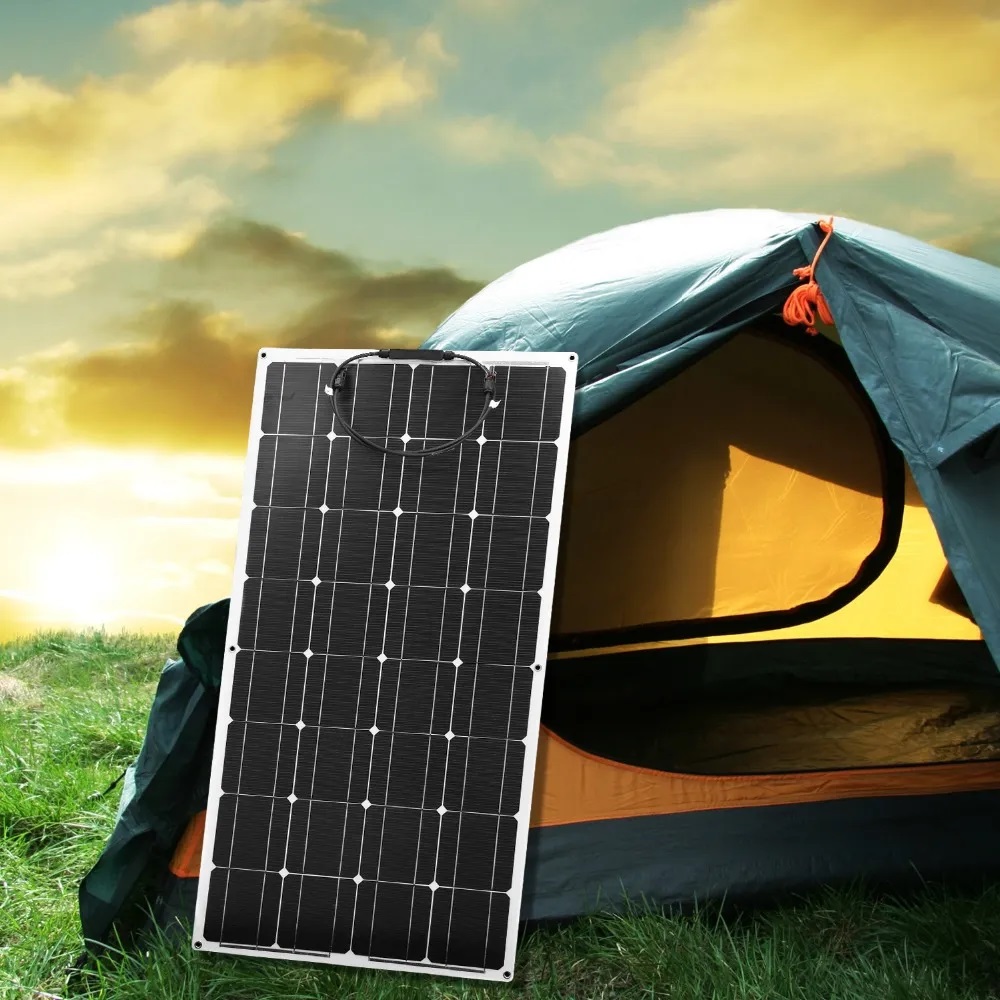Portable solar panels are a convenient and versatile way to harness solar energy on the go, whether you’re camping, hiking, traveling, or in any situation where access to grid power is limited. When considering portable solar panels, there are several factors to keep in mind to choose the right one for your needs.
- Power Output (Wattage): Determine the amount of power you need to charge your devices or run your appliances. Portable solar panels come in various wattages, so select one that matches your power requirements. Common power outputs for portable solar panels range from 10W to 100W or more.
- Size and Weight: Consider the physical dimensions and weight of the portable solar panel. It should be compact and lightweight enough for your intended use. Smaller panels are easier to carry but may generate less power.
- Foldable or Rollable Design: Some portable solar panels come with foldable or rollable designs, making them highly portable and easy to store when not in use. This feature can be especially handy for outdoor activities.
- Durability: Since portable solar panels are often used outdoors in various conditions, they should be durable and built to withstand exposure to sunlight, rain, and occasional rough handling. Look for panels with robust construction and materials.
- Weather Resistance: Ensure that the portable solar panel has weather-resistant features, such as water-resistant or waterproof coatings and UV protection, to extend its lifespan and maintain efficiency in different weather conditions.
- Type of Solar Cells: Portable solar panels typically use either monocrystalline or polycrystalline solar cells. Monocrystalline panels are more efficient and compact but tend to be pricier. Polycrystalline panels are usually more affordable but slightly less efficient.
- Charge Controller: Some portable solar panels come with integrated charge controllers to regulate the voltage and current to your connected devices or batteries. A built-in charge controller can be a valuable feature for convenience and protection.
- Compatibility: Ensure that the portable solar panel can charge your specific devices or battery types. Check the output connectors and voltage compatibility with your equipment.
- Portability and Storage: Consider how easy it is to transport and store the panel. Features like carrying handles, storage pouches, or built-in stands can be practical for mobility and convenience.
- Mounting Options: Look for panels with various mounting options, such as grommets, hooks, or attachment loops, so you can secure the panel to different surfaces or structures.
- Accessories: Some portable solar panels come with accessories like extension cables, adapters, and connectors to make it easier to connect your devices or charge your batteries.
- Efficiency and Conversion Rate: Check the panel’s efficiency and conversion rate to understand how effectively it converts sunlight into electricity. Higher efficiency panels generate more power from the same amount of sunlight.
- Warranty and Customer Support: Consider the warranty offered by the manufacturer and the availability of customer support in case you encounter any issues with your portable solar panel.
- Budget: Determine your budget for a portable solar panel and look for options that meet your requirements within that budget.
Ultimately, the choice of a portable solar panel should align with your specific needs and preferences, whether you need a small panel for charging small devices like smartphones and tablets or a larger panel to power camping appliances or recharge portable power stations.


